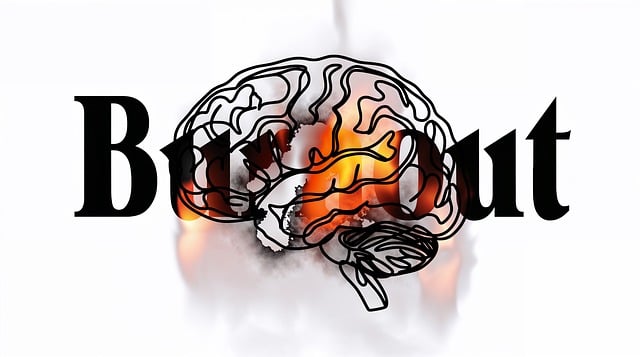El desarrollo de la inteligencia emocional (IE) en niños hispanohablantes es crucial en la primera infancia debido a la alta plasticidad cerebral. La terapia adaptada culturalmente, junto con servicios de apoyo contra el trauma, fomenta la regulación emocional sana, la empatía y la resiliencia. Estas estrategias van más allá del aprendizaje del vocabulario emocional al crear espacios seguros para la expresión. Las intervenciones personalizadas previenen el agotamiento y empoderan a los niños con IE de por vida, ayudándoles a afrontar los desafíos de manera efectiva. La terapia es una herramienta vital para apoyar a estos jóvenes en su crecimiento emocional y social, abordando sus necesidades específicas y promoviendo la salud mental en un contexto culturalmente sensible.
Emotional intelligence (EI) is a vital skill for young children’s holistic development, influencing their interactions and success. This article explores the significance of EI, focusing on its impact on young minds, especially Spanish-speaking kids. We delve into the role of therapy as a powerful tool to nurture EI, alongside practical strategies for parents and educators. By understanding and cultivating emotional intelligence, we empower children to navigate social and academic environments with confidence and empathy.
- Understanding Emotional Intelligence and Its Impact on Young Children
- The Role of Therapy in Nurturing Emotional Intelligence for Spanish-Speaking Kids
- Practical Strategies to Build Emotional Intelligence at Home and in the Classroom
Understanding Emotional Intelligence and Its Impact on Young Children

Emotional intelligence (EI) is a child’s ability to recognize, understand, and manage their own emotions, as well as empathize with others. This crucial skill set isn’t just about feeling emotions; it involves navigating them in healthy ways. Early childhood is a vital period for developing EI, as young brains are highly malleable. By fostering emotional intelligence in Spanish-speaking children through therapy, we can help them build resilience and navigate life’s challenges effectively.
This process goes beyond simply teaching emotional vocabulary; it involves creating safe spaces where children can express their feelings freely. Trauma support services tailored for young kids play a significant role in enhancing emotional regulation. By addressing underlying issues and providing a stable environment, these services contribute to burnout prevention, ensuring that children grow up with the tools needed to thrive emotionally.
The Role of Therapy in Nurturing Emotional Intelligence for Spanish-Speaking Kids

La terapia juega un papel crucial en el desarrollo de la inteligencia emocional en niños hispanohablantes. A través de sesiones adaptadas a su cultura y lenguaje, los terapeutas pueden ayudar a estos pequeños a comprender y regular sus emociones. La terapia para niños pequeños hispanohablantes no solo se centra en mejorar su bienestar emocional, sino también en fortalecer sus habilidades sociales y comunicativas, permitiéndoles construir relaciones más saludables y resilientes.
Las técnicas terapéuticas pueden proporcionar herramientas efectivas para el manejo del estado de ánimo, la reducción de la ansiedad y la intervención en crisis. Estos procesos ayudan a los niños a identificar sus emociones, expresar sus sentimientos de manera apropiada y desarrollar estrategias adaptativas para enfrentar situaciones difíciles. Al ofrecer un espacio seguro y comprensivo, la terapia empodera a los niños hispanohablantes para que crezcan con una mayor autoconciencia emocional y habilidades para navegar los desafíos de la vida.
Practical Strategies to Build Emotional Intelligence at Home and in the Classroom

Building emotional intelligence (EI) is a valuable skill that can be nurtured and developed at home and within educational settings. For young Spanish-speaking children, incorporating practical strategies can significantly enhance their EI development while addressing any cultural sensitivity in mental healthcare practices.
Parents and educators can foster EI by encouraging open conversations about emotions, teaching empathy through storytelling and role-playing scenarios, and promoting self-awareness activities. Therapy for young children, specifically tailored to address emotional needs, plays a crucial role in this process. These strategies not only help children identify and manage their emotions but also contribute to the reduction of mental illness stigma within communities. Additionally, integrating mental wellness coaching programs can offer guidance on managing stress and building resilience, ensuring that these practices are age-appropriate and culturally responsive.
Emotional intelligence is a cornerstone of healthy development, especially for young children. By understanding its impact and implementing practical strategies at home and in the classroom, parents, educators, and therapists can foster a more emotionally intelligent environment. For Spanish-speaking families, access to therapy specifically tailored to their linguistic and cultural needs plays a crucial role in nurturing emotional intelligence, ensuring these children thrive in a diverse world. Through combined efforts, we can empower young minds with the skills to recognize, understand, and manage their emotions effectively.














